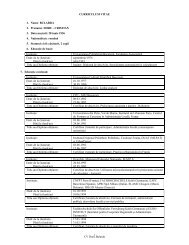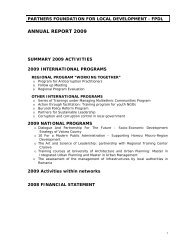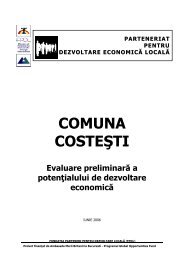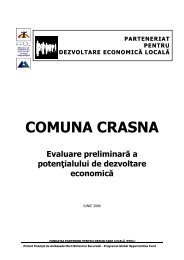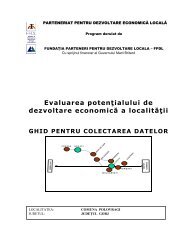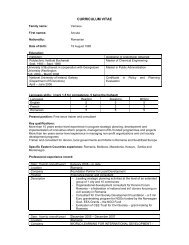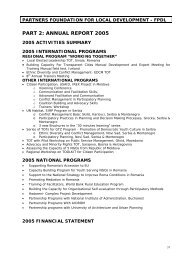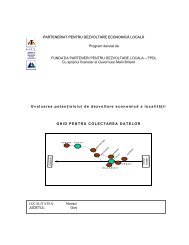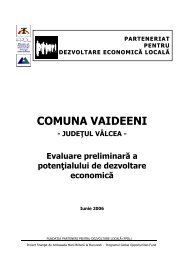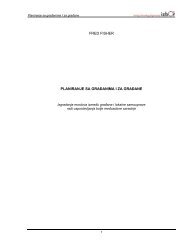Organizational Development: A Manual for Managers and ... - FPDL
Organizational Development: A Manual for Managers and ... - FPDL
Organizational Development: A Manual for Managers and ... - FPDL
Create successful ePaper yourself
Turn your PDF publications into a flip-book with our unique Google optimized e-Paper software.
uying exp<strong>and</strong>ing memory of computers in response to the rising size of messages causing older<br />
messages to be deleted, training staff in new skills in response to changing products, etc.<br />
These measures look like more or less changing of organization itself – yes, it is true. But what<br />
remains? If we do not wish to permanently ‘solve the same problem’ caused by uncontrollable<br />
<strong>for</strong>ces <strong>and</strong> repetitively waste resources <strong>for</strong> this, then we may consider changing the organization in<br />
a way that it would maintain it in a zone of com<strong>for</strong>t in spite of the negative influence of given<br />
uncontrollable factors. As someone once said, “There is no such thing as bad weather, just bad<br />
clothes...”<br />
Management<br />
Elimination of objectionable deviations, or a correction of trajectory each time a need raises –<br />
monitoring <strong>and</strong> control –may be one of the director‘s most critical functions.<br />
Elimination of or compensation <strong>for</strong> systematic reasons <strong>for</strong> objectionable deviations –is<br />
another function, also called problem solving.<br />
Some directors never solve problems. Due to the limits of their ability or authority – they just try to<br />
keep things as they are, or punish someone when something goes wrong. We call such directors<br />
controllers. A controller acts within the limits of control, strictly in accordance with the instruction<br />
<strong>for</strong> each particular case, <strong>and</strong> must report to his/her authority if something goes out of control.<br />
He/she is responsible <strong>for</strong> his/her own operation, or <strong>for</strong> doing what must be done, <strong>for</strong> executing<br />
designated duties.<br />
A director, who solves problems, we will call manager. Because the verb manage means not just<br />
supervision, but ‘succeeding in being able to do something; to contrive to carry on despite<br />
difficulties; to be in charge (of), administer’ (Collins Dictionary <strong>and</strong> Thesaurus, 1991). It is a bit<br />
more than just to control. It means to undertake all feasible measures, which do not contradict the<br />
limits of authority, to ensure the situation is where it should be. The top manager is responsible <strong>for</strong><br />
the operation <strong>and</strong> development of the organization or <strong>for</strong> doing what is necessary to consider all<br />
possibilities or provide optimal utilization of all accessible resources.<br />
Managerial capacity<br />
The effectiveness of a manager depends on his/her ability to correctly define problems, find<br />
rational solutions <strong>for</strong> them, <strong>and</strong> optimally organize <strong>and</strong> implement all necessary actions to achieve<br />
desirable results. Effectiveness here is defined as the difference between what a manager brings<br />
to the organization <strong>and</strong> what he or she takes from it. The effectiveness may be positive when the<br />
41



